Network Solutions Guide for Modern Businesses in 2024
Last Updated on December 1, 2023
Thriving in today's highly competitive business landscape requires more than just hard work and dedication. You need an agile, fortified, and organized network that keeps you ahead of the curve to succeed. From the initial setup of a network to its ongoing support and maintenance, every aspect plays a crucial role in ensuring smooth operations. This practical guide delves into the essentials of Networking Solutions, Network Wiring Solutions, and Network Support, providing you with the knowledge you need to make informed decisions and keep your business connected and secure.
Table of Contents
Networking Solutions
Networking solutions are critical to the modern business landscape, offering the infrastructure for efficient communication, collaboration, and data management. These solutions encompass a range of services and technologies, each tailored to meet the specific requirements of different business environments, from small local offices to large multinational corporations.
Advanced Network Design and Management
A well-designed network is the cornerstone of a successful business operation. It involves more than just connecting various devices; it requires a strategic approach to ensure optimal performance, scalability, and security.
- Strategic Network Planning involves understanding the business's current and future needs, selecting the appropriate network topology, and determining the right mix of wireless and wired connections. For those embarking on setting up a robust business network, it's essential to consider factors like bandwidth requirements, data security needs, and potential scalability.
- Hardware and Software Integration: The choice of network hardware (like routers, switches, and firewalls) and software (such as network management tools) plays a crucial role in the network's efficiency and security. Selecting the right components ensures the network can handle the required data load and provides robust security measures to protect sensitive information.
The Role of Network Administrators
Network administrators are the unsung heroes of the IT world, responsible for the smooth operation of a business's network infrastructure. Their duties include:
- Network Monitoring and Performance Management: Regularly monitoring network performance to identify and address potential issues before they escalate. This includes managing network traffic, optimizing bandwidth usage, and ensuring a consistent and reliable connection across all network segments.
- Maintenance and Troubleshooting: Conducting routine network maintenance, updating network hardware and software, and troubleshooting connectivity issues as they arise. Knowing how to enhance your network's performance is crucial for network administrators, ensuring minimal downtime and maximum efficiency.
Key Trends and Technologies in Networking
The networking field continuously evolves with new technologies that potentially transform business operations.
- Cloud-Based Networking: The shift towards cloud computing has led to the development of cloud-based networking solutions, which offer greater flexibility, scalability, and cost-efficiency. These solutions allow businesses to manage their networks remotely and scale resources up or down as needed.
- Internet of Things (IoT): The increasing adoption of IoT devices in the business environment is changing the dynamics of network management. Network Solutions must now accommodate many connected devices, each potentially requiring different levels of bandwidth and security considerations.

Network Wiring Solutions
Network wiring is the foundation of any robust network infrastructure. This section explores the various aspects of network cabling, essential for establishing a reliable and high-performing network.
Understanding Network Cabling
The choice of network cabling can significantly impact the performance and reliability of a business network. Here, we delve into the types of network cables and their appropriate applications.
- Types of Network Cables: There are several network cables available to fulfill different networking requirements. This includes various types of cables that offer different speeds, bandwidths, and connection distances.:
- Ethernet Cables such as Cat5e (1Gbs), Cat6 (10Gbs), and Cat7(10Gbs+) are commonly used for wired networking. They vary in speed and bandwidth capabilities, making them suitable for different applications.
- Fiber Optic Cables: Known for their high-speed data transmission and immunity to electromagnetic interference, they are ideal for long-distance and high-bandwidth connections.
- Coaxial Cables: Often used for broadband internet connections due to their durability and resistance to signal interference.
- Choosing the Right Cable: The choice depends on network size, bandwidth requirements, and environmental conditions. Exploring best practices in network configuration can be invaluable for insights into making the right choices.
Best Practices in Network Cabling
Proper installation and management of network cabling are crucial for ensuring optimal network performance and longevity.
- Cabling Standards and Compliance: Adhering to industry standards, such as the ANSI/TIA/EIA standards, ensures the network cabling is reliable and meets performance benchmarks.
- Cable Management: Effective cable management is crucial for maintaining an organized and efficient network. This includes proper labeling, using cable trays and conduits, and avoiding common pitfalls like cable stress and excessive bending.
- Dealing with Electromagnetic Interference: In environments with potential electromagnetic interference, cable shielding, and placement should be given special consideration to ensure consistent network performance.
Advanced Considerations in Network Wiring
As businesses grow and their networking needs evolve, more advanced cabling solutions might be required.
- Structured Cabling Systems: These systems offer a comprehensive and flexible cabling infrastructure supporting multiple voice, data, video, and multimedia systems. It's a future-proof solution that allows easy additions, changes, and scalability.
- Wireless Integration: While wireless technology is becoming more prevalent, it often works with wired networks. Understanding how to balance and integrate these two can be key to a successful network infrastructure.

Our Preferred Network Hardware and Software Solutions
At iFeeltech, we understand that building a reliable and secure network is pivotal for any business. Our approach is tailored to meet each client's unique needs, ensuring that the solutions we deploy are perfectly aligned with their specific requirements. Here’s an overview of the hardware and software solutions we frequently recommend:
Small Business Network Solutions
For small businesses, especially those with fewer than ten computers and operating in a compact space, simplicity and efficiency are key. In many cases, the router provided by your Internet Service Provider (ISP) can offer a solid foundation for network security.
- AT&T ActiveArmorSM: Offered by AT&T, this internet security solution provides a robust security baseline when properly configured.
- Comcast SECURITYEDGE™: A similar offering by Comcast designed to protect small business networks effectively.
These ISP-provided solutions, when optimized, can deliver reliable security for small-scale operations without the need for extensive additional hardware.
Solutions for Larger Installations
We turn to more advanced solutions like Ubiquity Unifi and Synology network systems for more extensive network requirements, such as those in larger businesses. These are our go-to choices for their versatility and comprehensive security features.
- Ubiquiti Unifi: Known for its wide range of networking products, Ubiquiti Unifi offers scalable solutions that include advanced security layers and extensive monitoring options. This makes them ideal for businesses needing more robust and flexible network infrastructure.
- Synology Network Solutions: Synology excels in providing network-attached storage (NAS) and router solutions that cater to a broad spectrum of business needs. Their solutions offer enhanced security measures, data management, and performance monitoring, making them well-suited for larger installations requiring more than basic networking capabilities.
By leveraging these trusted solutions, we ensure that our client's networks are secure and optimized for performance and scalability. Whether you're a small startup or a large enterprise, we have the expertise and the tools to build a network that supports and enhances your business operations.
Network Support
A well-functioning network is crucial to keeping your business up and running smoothly. This section will explore different ways to support your network, from routine upkeep to tackling more complex issues. Let's dive in and ensure your network is operating at its best!
Defining Network Support
Keeping your network up and running smoothly is key to a successful business. That's why we provide comprehensive network support, regular maintenance, and speedy issue resolution to ensure your operations run efficiently and without interruption.
- Monitoring and Maintenance: Regularly checking the network's performance is key to identifying potential issues early. This encompasses monitoring network traffic, ensuring all components function correctly, and performing routine updates and patches.
- Troubleshooting and Problem Resolution: When network issues occur, swift and effective troubleshooting is vital to minimize downtime. This involves diagnosing the problem, identifying the root cause, and implementing a solution.
Remote vs. On-Site Network Support
Network support can be provided remotely or on-site, each with its advantages.
- Remote Network Support: Offers quick and cost-effective solutions for software-related issues. It's particularly advantageous for addressing problems that don't require physical interaction with the network hardware.
- On-Site Network Support: Essential for resolving hardware-related problems. It allows for direct interaction with network components, necessary for tasks like cable management, hardware replacements, or hands-on troubleshooting.
Proactive Network Support Strategies
Proactive maintenance and support can prevent many network issues, ensuring a more reliable and stable network environment.
- Preventative Measures: Regular updates, security patches, and routine checks are included to ensure all network components function optimally.
- Educating Users: Training staff on basic network practices and security protocols can significantly reduce the risk of network-related issues.
- Advanced Support Techniques: For businesses with complex networks, advanced support techniques, such as network automation and AI-driven monitoring tools, can provide more efficient and practical support.
The Importance of Network Security in Support
A critical aspect of network support is maintaining the network's security. This involves:
- Regular Security Audits: Conduct periodic security assessments to identify vulnerabilities and implement corrective measures.
- Implementing Robust Security Protocols: Using firewalls, antivirus software, and intrusion detection systems to safeguard the network against threats.
- For comprehensive insights into ensuring network security in companies, staying updated with the latest security trends and best practices is crucial.
Best Practices in Network Management
A holistic approach to network management is key to maintaining a secure, efficient, and reliable network. This includes understanding the critical role of network security and implementing best practices to protect your data and infrastructure. For insights into ensuring network security in companies, staying updated on the latest security protocols and solutions is essential.
Another critical aspect of network management is the use of appropriate tools. Choosing the right network monitoring tools can significantly affect how effectively you can manage and maintain your network.
Conclusion
Networking is a dynamic and critical field in the realm of business operations. This guide is a starting point for understanding the complexities of Networking Solutions, Network Wiring Solutions, and Network Support. By exploring the linked articles, you can dive deeper into each topic and equip yourself with the knowledge to build and maintain a network that aligns with your business objectives.
FAQ
What Should Small Businesses Consider When Choosing an ISP for Network Security?
Small businesses should evaluate the security features offered by ISPs, like AT&T's ActiveArmorSM or Comcast's SECURITYEDGE™. They should consider the level of protection provided, ease of configuration, and how well these features align with their specific business needs.
When Should a Business Consider Upgrading from ISP-Provided Routers?
Businesses should consider upgrading when their networking needs surpass the capabilities of ISP-provided routers. This includes scenarios where advanced security, greater bandwidth, or support for more devices is needed, as with Ubiquiti Unifi or Synology solutions.
How Does Network Cabling Affect Internet Speed?
Network cabling directly impacts internet speed. For instance, Ethernet cables like Cat6 offer higher speeds and bandwidth compared to Cat5e. Choosing the right type of cable is essential for ensuring optimal internet performance for your business needs.
What Are the Benefits of a Structured Cabling System?
Structured cabling systems offer flexibility, scalability, and improved performance. They simplify the network infrastructure, making it easier to manage and adapt to future changes or expansions in the business.
How Can IoT Integration Impact a Business Network?
IoT integration can significantly increase the complexity and security demands of a network. Businesses must ensure their network can handle the increased data traffic and implement robust security measures to protect against IoT-related vulnerabilities.
What Role Does AI Play in Modern Network Management?
AI plays a crucial role in enhancing network management through automation, predictive analytics, and improved security. AI-driven tools can proactively monitor network health, predict potential issues, and optimize network performance.
Are Cloud-Based Networking Solutions Suitable for All Business Sizes?
Cloud-based networking solutions are versatile and can be suitable for businesses of all sizes. They offer scalability and remote management benefits, but businesses should assess their specific needs, such as data sensitivity and regulatory compliance, before transitioning.
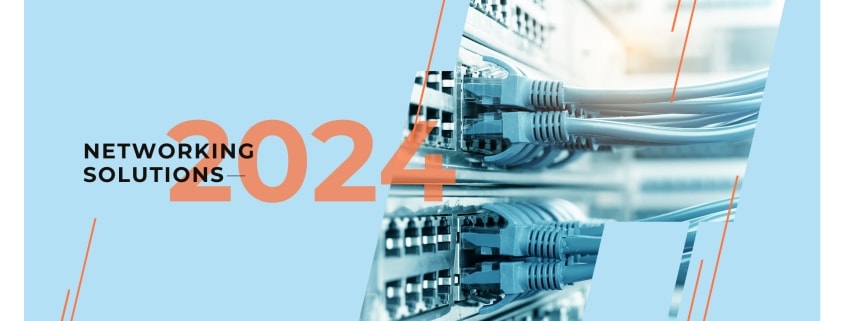

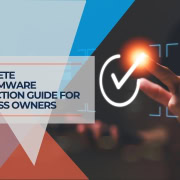
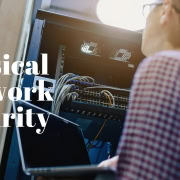

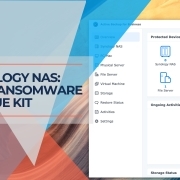

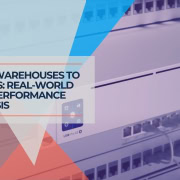
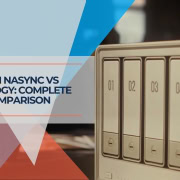


Leave a Reply
Want to join the discussion?Feel free to contribute!